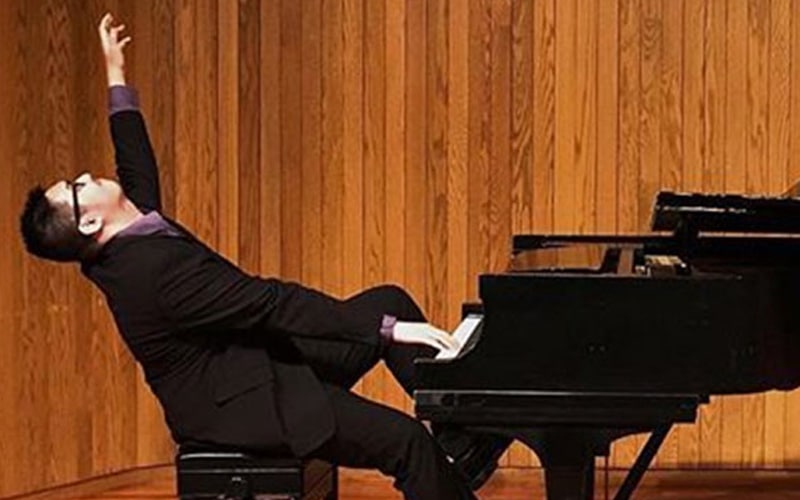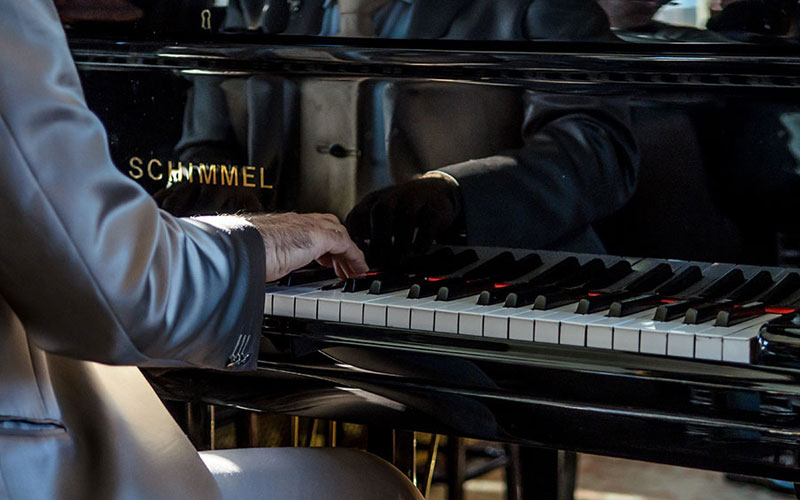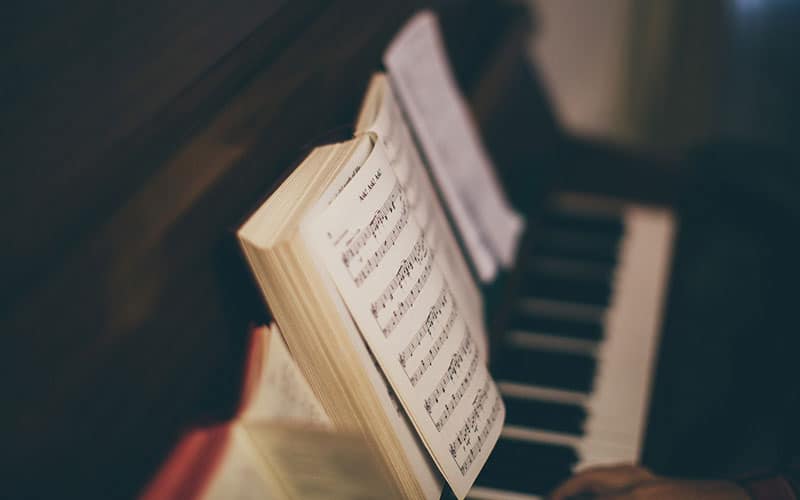Playing with others is always a good idea! And I don’t mean cricket or Chess on a Sunday morning (Even though that would have been a wise choice for some of my fellow pianists). Yes you guessed it; I meant performing with other instrumentalists and singers! Ok, you knew I was kidding and didn’t need to clarify.
Pianists tend to be, if I could say, a little egocentric. Part of it is piano’s fault, since it is such a fully autonomous instrument. Thus, they often tend to neglect the rest of the instruments and lose themselves in the pianistic abyss. However, by playing with others you can change that, since you would have to, for once, care about the other instruments as well.
Learning to appreciate other instruments helps to naturally coexist with other musicians. Because, when performing with others you will acquire a special talent; the talent to appreciate others. So, stop being a pianist and start becoming a musician. In a way, break your ego and you will excel in the musicians’ world.
Piano need not be a lonely cactus in the desert. It wonderfully survives with other instruments for many reasons:
First, piano is a polyphonic instrument. Polyphonic instruments provide a sense of orchestral presence since they simply can play many notes at the same time. Musicians believe that piano can satisfactorily cover the music “gap” other instruments often leave behind. No surprise piano is naturally the instrument of choice to accompany concertos for most instrumentalists. It can roughly provide an orchestral illusion of a concerto, an operatic aria or even a song from the radio. In a way, the piano is even more successful in accompanying than the guitar or the harp.
Now, tempo perception is an important aspect that you can develop when playing with others. And yes, your own vision of how the various tempi flow in a piece cannot always be right. Other musicians’ views of a particular tempo might also be valid.
A trap that most musicians fall into, even genius ones like myself, is that they often believe that they are mostly right about their musical instincts when rehearsing with others. For instance I have often played with violinists or singers that they force you to follow their own view of a tempo or a climactic sequence of a piece. And then, I have often felt that my own view of tempo is right and not theirs. I could have been right or wrong it doesn’t really matter. However, here’s what to do when confronted with a situation where you feel that your partner’s instincts are wrong about a particular tempo:
First, just stick to your guns. Don’t change your tempo even if your partner “musically” forces you to. If you are elegant enough try to change the tempo towards your partner’s direction but not more than 5% faster or slower from your desired one. Now, the second part is the most important. When at the end of the rehearsal you are confronted by a tedious remark from your partner to perhaps adjust your tempo, you are to say to him the following: “Yes, you are absolutely right, I think your speed was the correct one, I hope I managed to follow you”. Therefore your partner will feel that HE was in charge and not you, and this can always work with musicians and other primates when you want them to do what you want them to do. Now, for the third and final part, the next time you rehearse that piece, again, stand firm with your own tempo, and at the end praise your partner for wisely providing you with the correct insight. That’s it. They will start following you even more. Because, to be honest, you can’t always tell who is right or wrong when it comes to musical interpretation.
There are many reasons why music partners want to establish their own views of a piece. Here’s some:
- They know what they are doing and they possess a deep knowledge of a composer’s desires. (Now, that is mostly unlikely for the majority of musicians- sorry to the big-headed ones).
- They don’t know what they are doing and they don’t possess a deep knowledge of a composer’s desires. (This is the norm).
- They want to show-off their musical abilities. (This is the most possible scenario, particularly when frantic passages are involved).
I’m absolutely convinced that when Darwin famously said adapt or die, he was thinking of pianists. You need to adapt to the needs and musts of the other instruments as well, if you want your playing and consequently your career to prosper.
And your career will prosper. Or your money back. Oh, sorry, I was thinking of the piano method I bought yesterday just then…
At the same time, I understand that many pianists find it irritating when having to accompany sight-reading infants like most singers or having to put up with violinists who sound like they are cutting a tuba with an unsharpened saw. But please, don’t get angry. Music is hard. Working with experienced and inexperienced musicians alike will give you the tools to face the musician’s professional life with confidence.
And don’t think that all musicians are capricious, self-centered and have the intellectual capacities of a piano hammer. Somewhere there are musicians who are not that pompous and self-important and care about music-making too; like yourself, right?
You are going to learn a lot from accompany musicians from all strands of music. So please enjoy it and be thankful to all your music partners that they assisted you in becoming a better musician. And you never know, you might even become a better person too!






